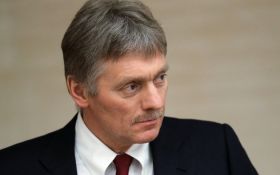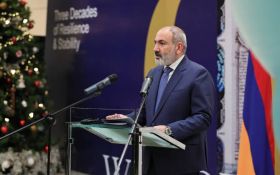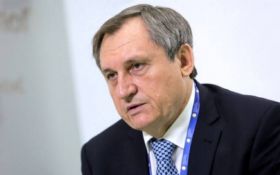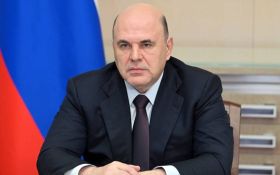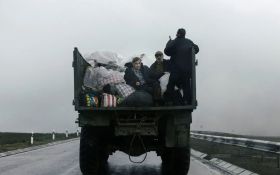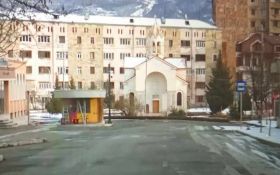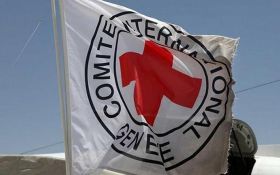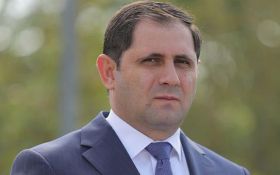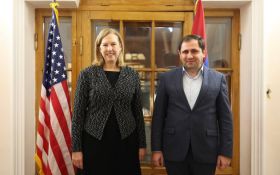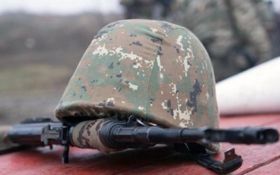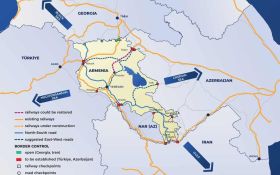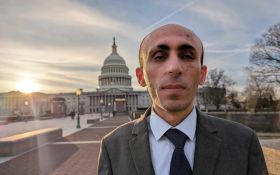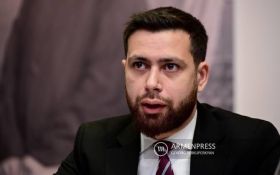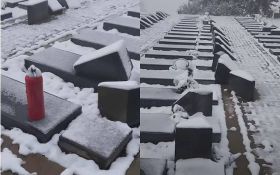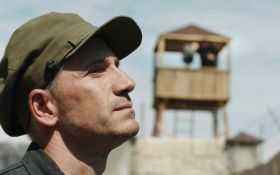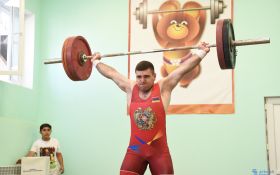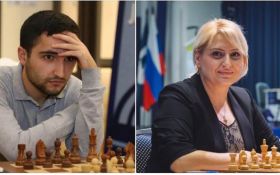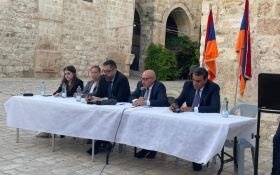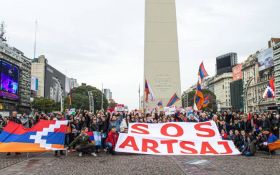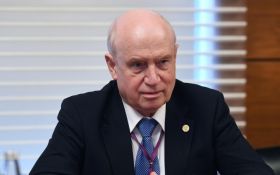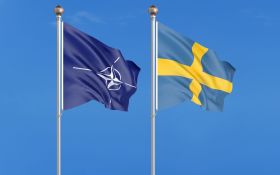The Armenian-Azerbaijani border tensions fully meet the interests of the orchestrator that is settling a number of issues by supplying arms to the conflicting parties, Arastun Orujlu, Head of the Azerbaijan-based East-West research center, told Tert.am.
Large-scale war not on Azerbaijan’s agenda: Azerbaijani expert
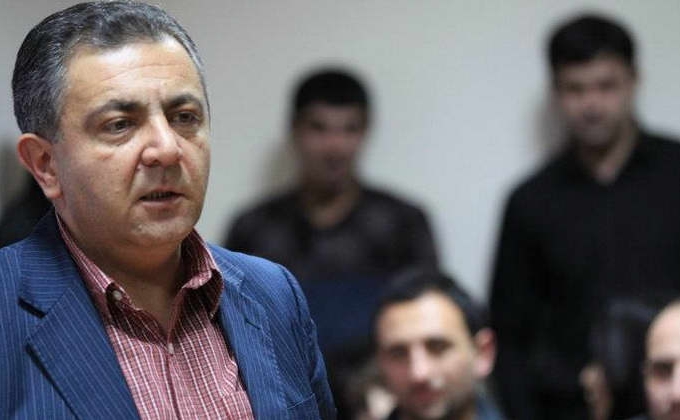
STEPANAKERT, DECEMBER 25, ARTSAKHPRESS: He noted he was speaking of Russia, which is thus keeping control of the conflict settlement process, with the conflicting parties remaining dependent on Russia. Moreover, Russia thus remains dominant in the region.
Mr Orujlu, an Armenian-Azerbaijani presidential meeting has taken place. In your opinion, what results did the meeting produce? Will it help the peace process?
Any presidential meeting and discussions is much better than when they issue war threats to play up to the internal audience egged on by themselves. The latter as a rule results in human losses on the Line of Contact, which escalates tension within societies. With respect to how well the meeting could facilitate a peaceful settlement, I think we are still far away from practical steps. Moreover, the conflicting parties are now even father from the starting point in the peace process as compared to the situation two or three years ago. So the meeting can only defuse tension.
Following the meeting, the OSCE Minsk Group co-chairs stated that the presidents had voiced their support to the OSCE Minsk Group co-chairs’ work on measures to reduce the risk of hostilities on the Line of Contact and on the Armenian-Azerbaijani border, as well as to create mechanisms for investigating border incidents. The real situation is, however, shows something different. The two states are reporting escalation and victims. Is it not a discrepancy?
The presidents are meeting, and the Minsk Group is doing its best for the negotiations, but the situation is escalating. The reason? It is because the peace process has not made any headway for more than two decades. The conflicting parties prefer building up their military forces, which is a rather serious argument not only in the case of resumed hostilities, but also as an efficient instrument in the negotiations. This fully meets the interests of the orchestrator that is settling a number of issues by supplying arms to the conflicting parties: it keep control of the conflict settlement process, with the conflicting parties becoming more dependent on it, while it remains dominant in the region and so on. I hope it is common knowledge that it is Russia that is calling the shots. Amid the current geopolitical realities, it is not at all interested in a resolution of the key conflict in the South Caucasus as it is due to such conflicts that it can secure its presence in the region. Russia is not at all attractive in all the other respects. And escalating is one of the most important parts of the picture. Otherwise, Russia would find it difficult to keep everyone on edge and remind them of its power. Therefore it is acting in this way- and is a success. So we can see regular escalation on the Line of Contact prior to the Azerbaijani and Armenian leaders’ meetings.
Following the meeting, Azerbaijan used tanks on the border, resorted to attacks and used other heavy weapons, which had not been used since a ceasefire agreement was signed. Armenian experts consider it a provocation and say that Azerbaijan is against a peaceful settlement of the conflict and disrespecting the international community. Do you share this opinion? If you do not, what is the reason for Azerbaijan using such weapons?
No, I do not. The same can be heard in Azerbaijan about Armenia. The point is a number of details, and I have mentioned some of them. Besides, no real control mechanisms are available now. And those available are not so easy to introduce because the Line of Contact is several hundred kilometers long. Azerbaijani commanders are just using more radical rhetoric, which affords the Armenian side an opportunity to present it in the light you have described or, to be precise, as experts are presenting it. Russia’s increasing military presence in Armenia may be the reason for Azerbaijan’s strong-worded rhetoric. Although it seems to have something in common with the growing tension in the Russian-Turkish relations, Baku never forgets Russia is Armenia’s politico-military ally, while Azerbaijan can only counterbalance this alliance with the Ankara-Baku-Tbilisi politico-military cooperation.
Does Azerbaijan have sufficient financial and human resources to unleash war?
I do not think such a task is on Azerbaijan’s agenda. However, should it happen, Azerbaijan will prove much superior in both respects.
What’s your assessment of the OSCE Minsk Group’s activities? According to some opinions, Azerbaijan is for Minsk Group members to be changed as their statements are more specific now.
Azerbaijan shows an ambivalent attitude to the OSCE Minsk Group, and the primary reason is not the Minsk Group’s allegedly specific statements. I think Azerbaijan’s relations with the co-chairing states play an important role. However, it is obvious that, since it was formed, the Minsk Group has been unable to ensure progress in the peace process. I have always been deeply convinced that it should not be expected as the very fact of conflicting interests does not allow it within this format. On the other hand, it would not be fair to disregard the OSCE Minsk Group efforts, as they have done a great deal to maintain regional peace and avert a new military escalation, which, no doubt, could have been much more disastrous than the one we experienced in the early 1990s. Different approaches can be shown, but I consider it success because my principle is “better a bad peace than a good quarrel.”

